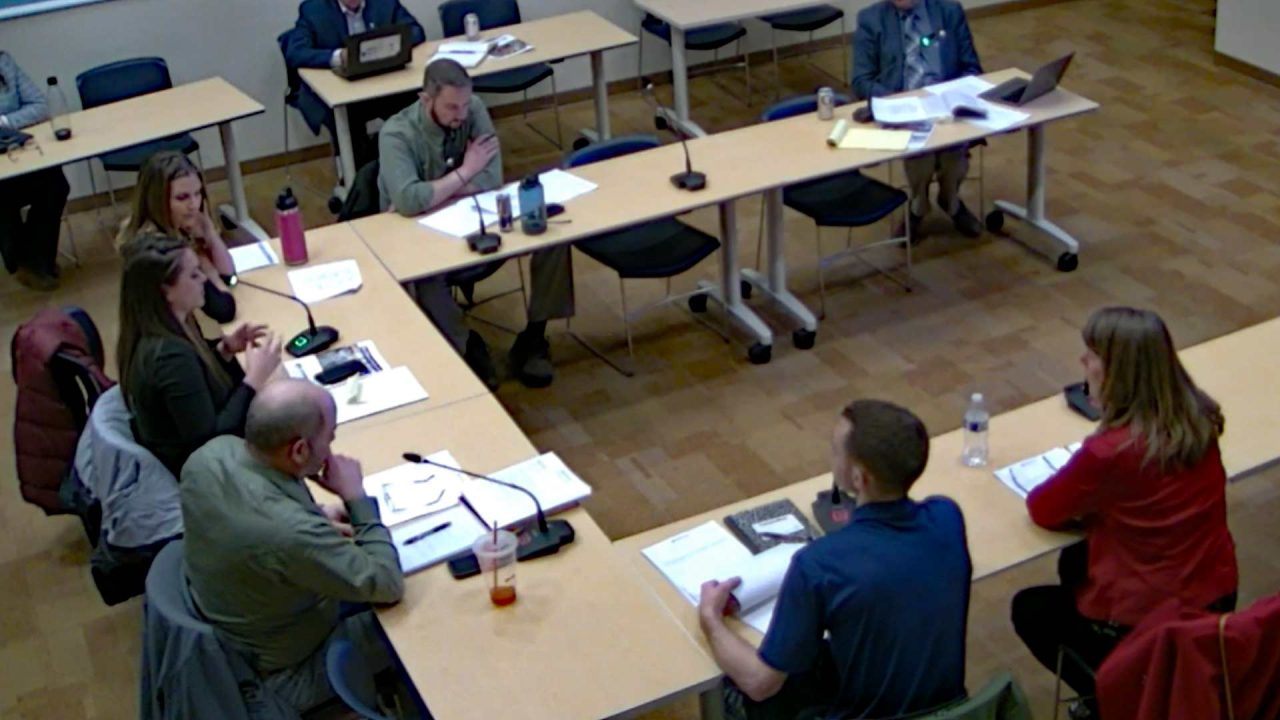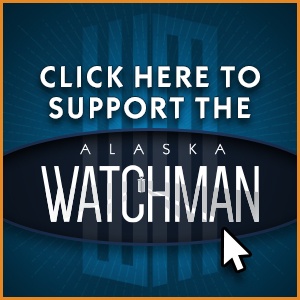

A controversial youth survey from the Alaska Department of Health will likely be rejected in state’s second largest school district.
On Jan. 18, the Mat-Su School Board held a work session in which the majority emphatically condemned the idea of using local public schools to administer a survey that asks teens intimate questions about their sexual proclivities, various types of contraception they employ and whether they have been tested for sexual diseases.
“Reading through the survey, I found it personally disgusting,” School Board Member Jacob Butcher said. “There [are] better things for the district to be spending their time and money on.”
The work session was intended to give Superintendent Randy Trani a sense of where the board stood before he made any final decisions about whether to administer the biennial Youth Risk Behavior Survey.
The 98-word questionnaire, which also gathers information about teen drug use, home life and parental relationships, and general health and wellbeing, was already on the rocks.
Last year’s survey was cancelled due to Covid complications and the fact that some communities took issue with the state’s failed attempt at adding a new question asking teens about their sexual orientation and preferred gender identities.
The Mat-Su refused to participate in the 2022 survey, and that looks likely to be the case this year. Without widespread district participation, the state may now be forced to cancel the entire survey, yet again.
“Every year it gets more and more invasive,” said School Board President Tom Bergey. “For me, as an individual, it’s time to draw a line in the sand.”
Fellow board member Kendal Kruse agreed.
“This is an overreach of the Department of Health – creeping into the schools,” she said. “The state is not the parent.”
“I would never want to answer these questions as a young kid,” said School Board Vice President Jubilee Underwood. “I’m a 100% no!”
Kruse expressed concern that the data-mining survey will desensitize young teens by asking about their private sexual practices. It may also cause children to have emotional reactions in class, especially for those who may have suffered from past abuse.
“Bringing that trauma up for discussion at school,” she said, “is absolutely insane.”
“You’re planting ideas in children, which they are going to go talk about,” Kruse added. “Parents have expressed to me that they do not want it.”
School Board Vice President Jubilee Underwood echoed this sentiment.
“I would never want to answer these questions as a young kid,” she said. “I’m a 100% no!”
Board member Kathy McCollum agreed, saying the state is “using our children” to gather sensitive data.
“I’m also bothered about just using class time for something like this,” she said.
Board member Ted Swanson was the only person in favor of the survey.
“Nothing in this survey is appalling,” he said. “If you can’t read the word sex and answer a question about it, then there’s other issues.”
He said the survey would help groups like the Mat-Su Health Foundation develop programs tailored to youth.
ALASKA WATCHMAN DIRECT TO YOUR INBOX
Developed by the CDC and the State of Alaska, schools have administered the survey every other year since the 1990s. Controversy in recent years had dogged the survey.
Concerned about continued community pushback, the state scrapped an attempt to insert sexual orientation questions this year, with the hope of reintroducing them subsequent years.
While LGBTQ questions won’t be in the 2023 survey, many other questions will pry into teens’ sexual activities, or lack thereof. This includes questions about forced sexual intercourse, the age at which teens first had sex, how many partners they’ve had, whether they used a condom or birth control, and how often they’ve been tested for STDs.
Several other questions are aimed at evaluating parents’ relationships with their children. These include questions about how much food they have at home, whether parents kicked them out of the house, and whether they felt unsafe at home.
The survey also asks about parental involvement in their lives, and whether they talk to them about sexually transmitted diseases.
The survey is part of a national effort run by the U.S. Centers for Disease Control and Prevention (CDC). The Alaska Departments of Health and Social Services and Education and Early Development facilitate the survey.
Nationally, powerful left-leaning activist organizations use YRBS data to push for LGBTQ affirming schools, gender-fluid bathrooms, transgender sports policies and curriculum that supports the wider LGBTQ agenda. Likewise, Planned Parenthood utilizes YRBS data to claim that schools should implement explicit sex education and offer birth control and abortion referrals for youth.
The survey does not ask for a student’s name, and their information is kept anonymous. Participation is voluntary and requires a parent to actively give permission in writing. Students 18 or older, however, do not need parental permission to take the survey.









15 Comments
Good job, Mat-Su School Board and parents!!! Thanks for saving us in the Fairbanks Borough from going through this nonsense. We suspect our district would easily have approved.
But the Fairbanks parents shouldn’t take the easy route, they still need to push back hard & with volume.
Thank you Mat-Su School Board; I hope that Superintendent Trani bases the final decision on your stance. As for Board member Ted Swanson – now we know another one of the supporters of groomers. I wonder how Ted Swanson is tied to the Mat-Su Health Foundation?
There you have it! Matsu Health FOUNDATION! You don’t want to have anything to do with organizations with that word in it!
Glad I live in the Mat-Su valley
Good for Matsu School Board. More needs to be done. Do not rest on proverbial laurels as it won’t stop there.
These people that are pushing and peddling this stuff need to be pushed into defense mode, and we need to go into offense. Parents, educators, community that know well the darkness and depravity behind all of this, be it the sex questionnaires, or pornographic sex manuals and literature in children’s libraries, need to be proactive and don’t just let the school board handle the battle alone. Back them up with letters, to them, legislators, other school boards including the state, the state commissioner of education. Get on board with Alaska Family Action. Take out full page newspaper ads exposing the stuff being promoted. We are in battle and it is light against darkness, good against evil. Do not rest thinking it has been taken care of by the school board. The attack on our culture, morality, the family and our children will continue to be relentless. We need to expose them, and push back.
I am writing a letter right now to send to my legislators, the Matsu School board, and the commissioner of education. Join me.
This is the very reason i live, shop, amd spend all my time in the mat-su this is why my kids go to school here as well thank you school board you did your job well this type of information is never proper for the state to ask any ones children they should be embarrassed and ashamed at the very attempt to do so i would have NEVER allowed my children to fill such a survey any way my children belong to me my wife and god and not the state
Woke needs to be cancelled, permanently. Woke is pedo friendly. Woke wants to sexualize our children. Woke is working hard to groom our children in schools and to train them to be willing to answer these horrific questions. Cancel NEA, cancel all teachers unions, shut it all down and start over.
People taking charge of the circumstances they are confronted with. Good for you matsu school board! The precarious ledge we are travelling on here does not have a very deep bench. If this board gets watered down and infiltrated by more Ted Swanson types, we are done! Take a sober look at our governor, is he even monitoring the situation? Does he even consider having a role in it!? I think the answer is obvious and yes we ought to be worried!
Good for you Matsu school board! It is not up to the school system to pry into the personal lives of children. Loud and clear – teach the children good academics!
You all may think that your teenagers don’t have sex, but you are in for a surprise when your daughter turns up pregnant. Teenagers need to be informed, not surpressed.
Not wanting perverts grooming and sexualizing our children is not suppression. Letting grooming monsters like planned barrenhood and the matsu health foundation (sic.) have access to our kids is the opposite of protecting them; all due deference to your probable parenting excellence.
Perverse explicit shattering of innocence!
Mike Dunleavy said in his speech “kids are important, it’s all about kids”
Mike Dunleavy is quietly watching the perverse actions saying nothing publicly, maybe because he finds it stimulating!? So hypocritical!!!
This survey is crap. Children go to school to learn skills that will help them make a living and cope with the adult world. It would be really good if schools would go back to doing what they were intended to do. And PS, it is never the schools place to question what a child does outside of school unless they present with obvious signs of abuse. Even then, that is not specifically the school’s responsibility, but the responsibility of everyone.
WhenI was in school I would have lied like hell on that survey just to freak out the adults. Only a fool would think information from that survey was useful. Children need to be observed and interacted with. Most if not all surveys are crap.